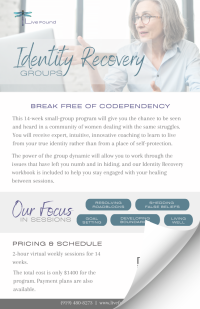Forgiveness Isn’t a Free Pass
C.S. Lewis put it starkly: “If you had a perfect excuse, you would not need forgiveness; if the whole of your actions needs forgiveness, then there was no excuse for it” (Essay on Forgiveness). I’ve lost count of how often I hear it in sessions: “You just won’t forgive me! Why can’t you let it go? We’re not moving forward because you’re stuck in the past!” It’s an accusation that lands heavy, placing the load of the relationship onto the impossible task of “forgetting the pain” of what’s been done. But here’s the unshakable truth: your forgiveness isn’t the key to reconciliation of a relationship. The changed behavior is. And that change doesn’t hinge on your grace—it’s the offender’s to walk out, whether you forgive or not.
“You Won’t Forgive” Isn’t the Problem
Too often, when someone demands forgiveness, they’re actually just chasing an excuse. Caught in their harm, they haven’t wrestled with its depth, haven’t bothered to understand the ramifications or to turn from them to live a life that brings repair. The offender wants the mess swept away, the world tilted back in their favor. “Forgive me” becomes an obligation to skip the hard part—no reckoning, no repair, just a pass to keep going. It’s not about healing you or the bond—it’s about dodging what has been broken as if it meant nothing.
That looks like entitlement cloaked as humility: “I deserve your forgiveness. I said I was sorry.” But, it is lived out like blameshifting. “I can’t stop hurting you because you won’t forgive.” “Your grudge keeps me from being kind.” Feel the twist? That’s crazy-making—flipping the fault onto you. C.S. Lewis lays it bare: if they’re begging forgiveness, they know their harm has no excuse. None.
Excuses Don’t Heal Broken Bonds
Abuse in marriage—emotional, narcissistic, any stripe or flavor—stands indefensible. Excuses won’t mend what’s torn; only change will. The offender has got to face what they’ve done, not lean on your grace to gloss it over as if it never happened. Otherwise, there will be no relational reconciliation. This requires a different conversation.
Jesus did not allow others’ toxicity, foolishness, and harm define him or take him off his mission. He forgave them. But many choose to continue in their own destruction. It begs the question, what, then, is forgiveness, really?
Owning Your Pain Without Losing Your Soul
Forgiveness does matter. For your own heart, it matters! Your heart cannot heal if you are giving someone else’s harm power to derail your God-fashioned design, purpose, and mission. It matters in reconciliation, as well (a separate and distinct part of healing), but it is the response to repentance — turning from harm, making it right, rooting it out—not the fuel of it. Repentance is the leader. When an offender truly confesses (tells the truth) and seeks your forgiveness, they will make it easy by living a life that creates a new story. Forgiveness would be an invitation, not a demand or obligation. Love doesn’t coerce; it calls.
You’re not the one demanding forgiveness—you’re the one left sifting through the rubble they left, the ache burying your heart. Don’t choke it down. It’s yours. It’s valid! It means you’re alive. But don’t let it strangle your soul. The truth is very often, “We’re not stuck because I won’t forgive. You broke us, and that’s yours to own.” Their wreckage isn’t your cross to bear.
Forgiveness doesn’t fix them. “My grace won’t rewrite your choices—only you can, and until you do, we’re split.” When they demand it, using it to duck responsibility, it’s a sham—empty static that tears us further apart. Real change doesn’t grovel for your pardon; it proves itself. They stop begging and start living it—actions, not words—until you see someone worth trusting again.
Rooted in God’s Voice to Live Well
Jesus laid it out: “Go and sin no more.” Forgiveness isn’t a hall pass for more ruin; it’s wisdom! It sees danger and takes refuge. It does not answer a fool according to his folly. It learns from life, and chooses to grow. It guards it’s own heart because that is the wellspring of life. And it releases the offender to feel the weight of their own choices for their own growth and maturity.
Here’s where your healing and steadfastness lie: tune out their noise for God’s voice. Forgiveness is your redemption in that is breaks the power of the harm that’s been done to you, and allows you to stay true to who God created you to be. He sees your pain, holds you firm, beyond their grasp. Forgiveness, then, is your release—not to lift them, but to free you from their grip. That is was restores your soul.
Inspired to talk more about this? Any of our coaches would love to untangle the mess with you!


